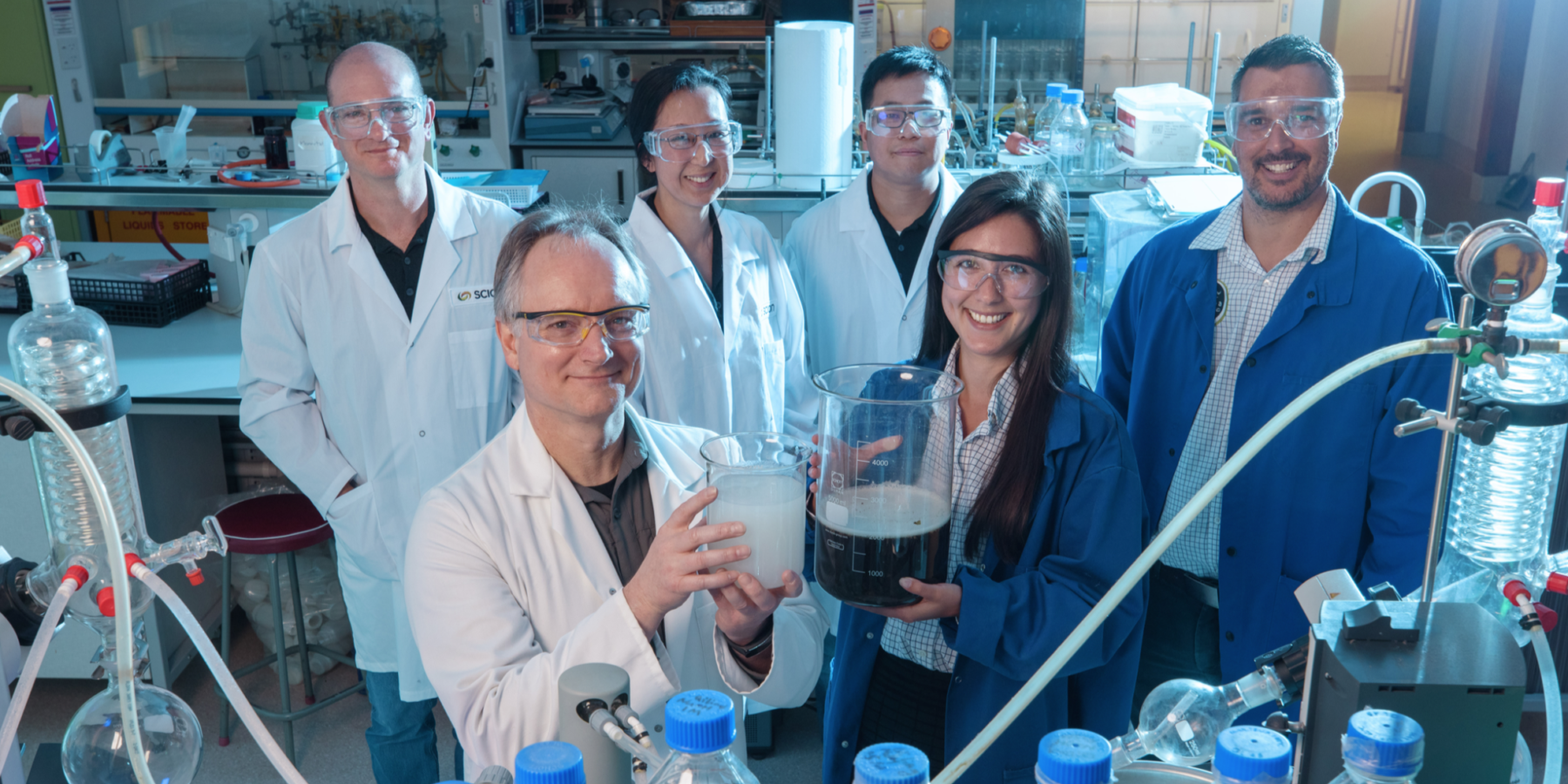As the perils of plastic production and pollution rise, Scion/AgriSea spies a solution in seaweed.
Nanocellulose is considered to be a sustainable alternative to petroleum-based plastics and can be used in a vast range of products including adhesives, batteries, biomedical supplies and cosmetics. It’s widely available, biodegradable and biocompatible but the bulk of the world’s supply is currently produced using wood pulp, aggressively treated with chemicals. Scion and AgriSea have found a way to create this versatile polymer from seaweeds and kelps, which avoids the usual downsides of nanocellulose production and turns waste from AgriSea’s core business into a high-value side hustle.
Scion / Agrisea
Kelp is on the way
Hill Laboratories Primary Industry Award
As the perils of plastic production and pollution rise, Scion/AgriSea spies a solution in seaweed.
Nanocellulose is considered to be a sustainable alternative to petroleum-based plastics and can be used in a vast range of products including adhesives, batteries, biomedical supplies and cosmetics. It’s widely available, biodegradable and biocompatible but the bulk of the world’s supply is currently produced using wood pulp, aggressively treated with chemicals. Scion and AgriSea have found a way to create this versatile polymer from seaweeds and kelps, which avoids the usual downsides of nanocellulose production and turns waste from AgriSea’s core business into a high-value side hustle.





